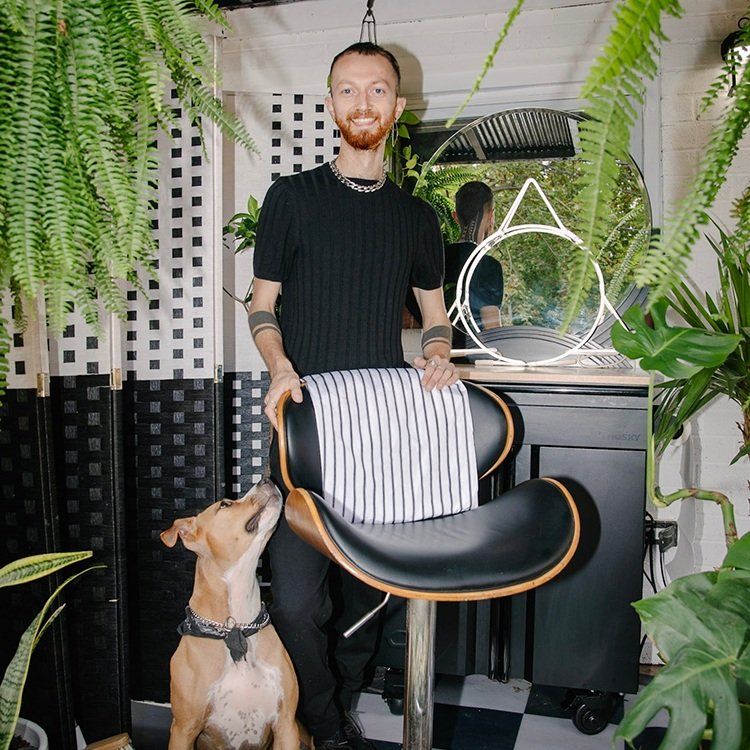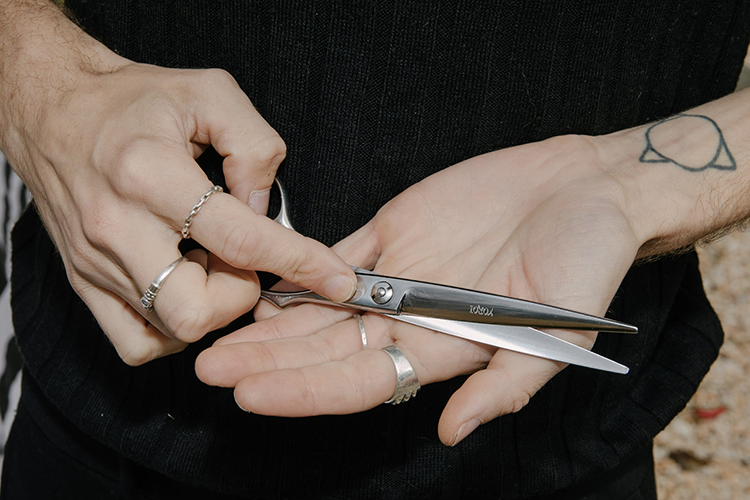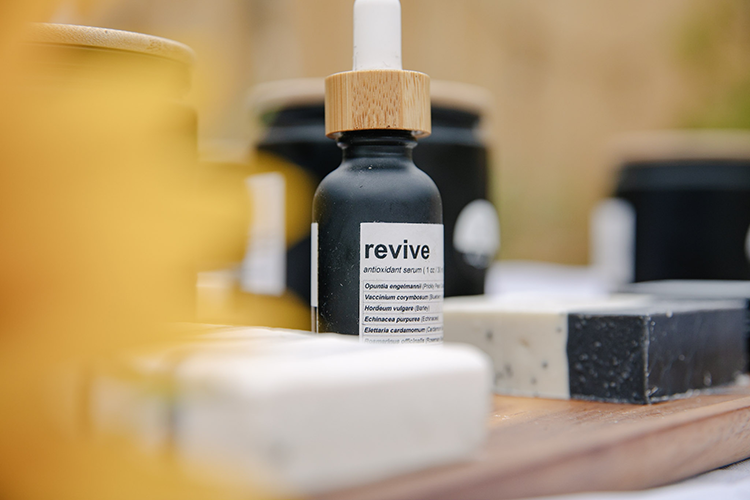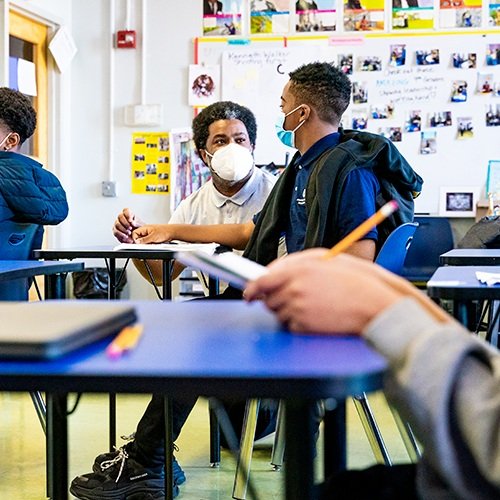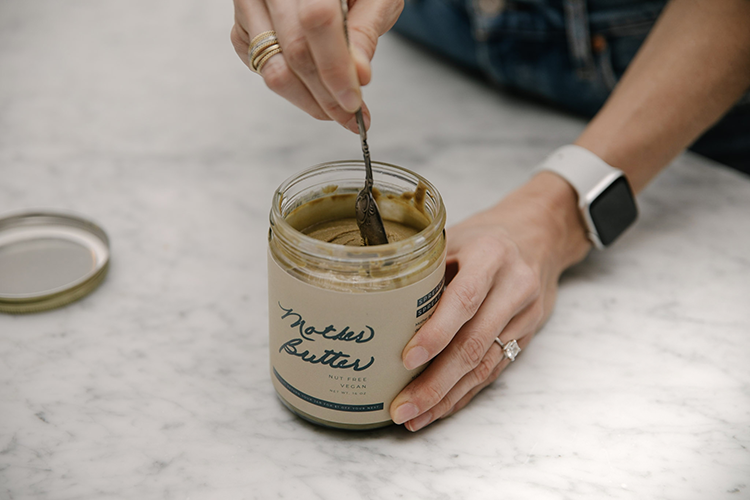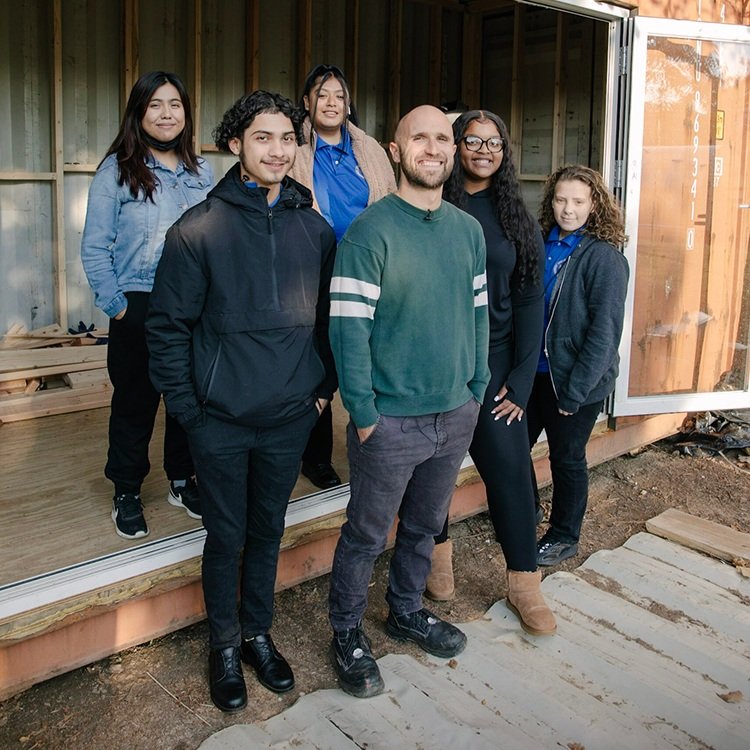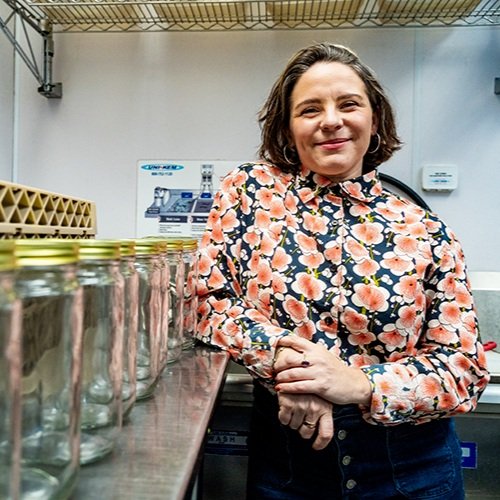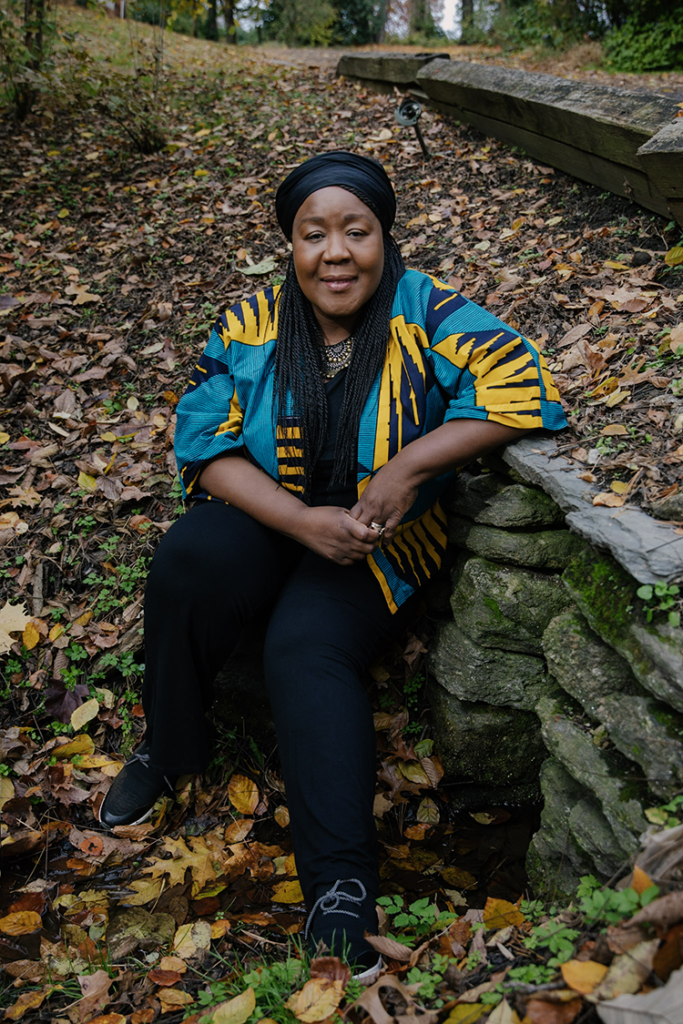Tucked into a little corner of Germantown, there’s a backyard garden unlike any other.
At the entrance there’s a black-and-white sign with a combined triangle and circle logo. After passing through the barbed-wire gate, there’s a stone path passing several trees and plants along the side of the house.
In the back, a circular garden encases a firepit with seating for friends and guests. Adjacent to the garden is an elevated stone porch, separated by a black metal fence. The patio holds a black leather barber chair, a collection of clippers, and hair and skin products. This is Odabu.
Odabu is a queer barber studio started by Billy Green in 2017 that provides stylish haircuts, handmade botanical products, and most importantly, a safe space for queer and nonbinary people.
During warmer months at the intimate studio, you can see bees fly from flower to flower and a fence adorned with lights that accentuate a border of flowers and herbs, including bayberry, mountain mint, echinacea and sumac. During the winter, cuts are available inside for masked clients who show proof of vaccination.
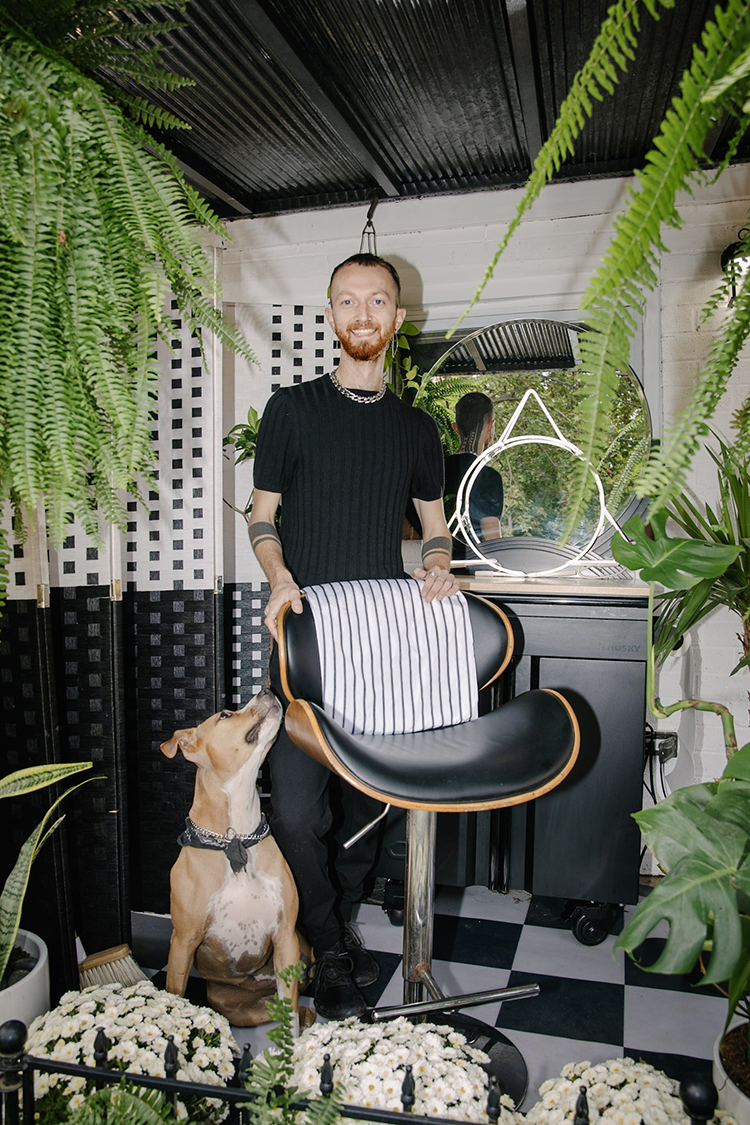
Green says they started Odabu to build a space where nonbinary people can feel comfortable.
“I really was beginning to recognize how binary the hair industry is,” Green says. “So we built a space to build relationships in which the guests can feel affirmed—not only in the space, but also in themselves and how they’re presenting.”
“It is so magical,” client Chía Cotansuca says of visiting Odabu. “I could feel the energy exuding from the space.”
How It Started
Odabu began four years ago when Green started cutting their own hair. At the time, they were living in a warehouse downtown and began garnering attention for their styles. They say people began asking for haircuts after seeing their work.
As time progressed, Green took their skills to The Attic Youth Center, an LGBTQ organization aimed at building community, reducing isolation and combating homophobia. There, Green says they began giving free haircuts to the youth while also “open[ing] up a platform to talk about being young, being queer and what that means in terms of aesthetics, and how we present ourselves with our hair.”
Soon Green decided to move toward opening their own studio. The Lancaster County native, who holds an architecture degree from Temple University, set out for training at Philadelphia Barber School and Premier Barber Institute.
“From there, everyone was like, ‘Oh, you studied art. You can do this design on my head, right?’” Green says. “So I was like, ‘Sure.’”
After completing training, Green opened Odabu in Chinatown.
“What the name comes down to is the fact that I was trying to find something that didn’t exist or cross-reference anything else on the internet,” says Green. “Specifically wanting something with three syllables. Something that felt very open. Something with a lot of vowels.”
When the pandemic struck in 2020 Odabu was forced to close its doors. After several months of reflection, Green decided to reopen in their backyard in Germantown.
“During the pandemic I was beginning to realize that green space and open space are really important to me and my community,” Green says. “I think a lot of the queer community is starting to move this way.”
Today, Odabu has a growing Instagram presence (@odabu_), where they are known for striking black-and white haircut profiles that feature geometric designs.
“I’m thinking about hair as almost a block of wood in the same sense I was when I was sculpting,” Green says. “Understanding that each type of wood has a different grain and texture in the same way that hair has different growth patterns and grain patterns and texture and density—and kind of using geometry to carve out organic forms and shapes.”
Before Cotansuca became a client, they admired Green’s work from afar. They found Odabu on Instagram in 2017 and began following their work and growth. Once Cotansuca moved to Philadelphia, more and more of their friends began visiting Green.
“Finally, I just decided to book an appointment with them,” Cotansuca says. “And I’m really glad and grateful that I did because it blossomed into a friendship.”
The Larger Conversation
Odabu also serves as a space for nonbinary Philadelphians to experience an environment they never found in conventional barbershops and salons. Green says the dialogue at Odabu is open and accepting of all, compared to a typical shop.
Since the first opening, Darius Alexander has visited Odabu and says he has always felt welcome. Before services with Green, Alexander says services in traditional barbershops felt uninviting and a space for censorship.
“I think barbershops, especially barbershops of color, are not the most welcoming—or the energy isn’t that welcoming,” Alexander says.
Alexander says he felt like he had to pretend at traditional barbershops. Within Odabu, he feels like he can be open about his personal life and discuss relationships without clashing with barbershop culture.
“There’s no hyper-masculinity, so I can just live my life and my truth and not feel like I have to just sit down and wait for the service to be over,” Alexander says.
Cotansuca says their experience with salons and barbershops was similar.
“I basically have to pretend to be like what they perceive, or try to use that as a teaching moment to disclose my gender identity,” Cotansuca says. “But also, I’m just trying to get a haircut. I don’t necessarily want to have to tell who I am as a person.”
Cut to the Future
As Odabu continues to grow, Green plans to use the outdoor studio for events that elevate the apothecary element of the studio. Green, who loves gardening and herbalism and once worked in landscaping, formulates products from the plants in their garden.
When clients began asking for advice about hair and skin products, Green did not feel confident sending clients to store shelves for products with harmful ingredients and unsustainable packaging. Instead, they decided to create their own small-batch line of serums, soaps and candles using sustainable packaging—recycled glass and no plastic.
Today Odabu is by appointment only and the studio location is confidential to protect clients and the space itself. “My goal really is to create a safe space for the queer community,” Green says.


